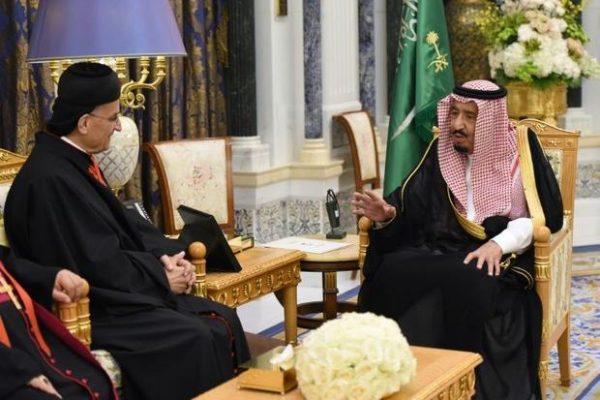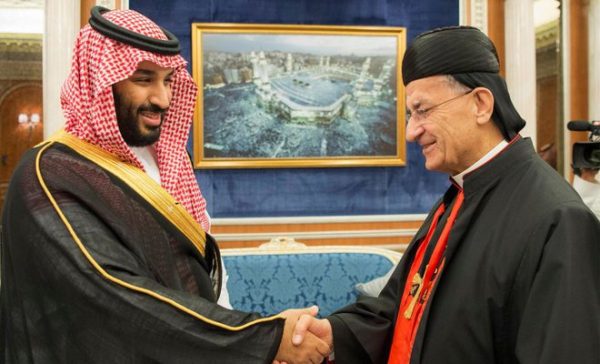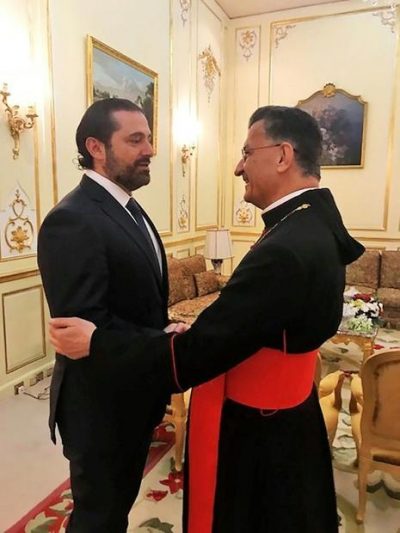
Lebanon’s Christian Maronite Patriarch, visiting Saudi Arabia in an historic visit to the ultra-conservative Muslim kingdom, expressed support on Tuesday for the reasons behind Lebanese Prime Minister Saad al-Hariri’s resignation.
Hariri, a Saudi ally, resigned abruptly on Nov. 4 in a move Lebanese political leaders ascribed to pressure from Riyadh. Hariri said his resignation had been prompted by an assassination plot and accused Iran and Hezbollah of sowing strife in the region. He denies there are any constraints on his movement.
Patriarch Bechara al-Rai met Hariri as well as King Salman and Crown Prince Mohammed bin Salman as part of a trip that was planned well before the Lebanese political crisis brought on by Hariri’s resignation.

“Hariri is returning as fast as possible and I support the reasons for his resignation,” Rai was quoted as saying by Saudi-owned Al Arabiya television.
Hariri said he was fine and would return to Lebanon in the next two days. On Twitter, he urged Lebanese to remain calm and said his family would stay in Saudi Arabia, calling it “their country”.
The events have thrust Lebanon back to the forefront of the conflict between Sunni Saudi Arabia and Shi‘ite Iran.
Rai’s trip has come under heightened scrutiny in light of Hariri’s resignation, but an official visit to Saudi Arabia by such a senior non-Muslim cleric is significant as a rare act of religious openness by the conservative Muslim country.
The kingdom hosts the holiest sites in Islam and bans the practice of other religions, forcing Christians to risk arrest by praying in private homes.
Prince Mohammed says he wants Saudi Arabia to open up more to the world. In addition to imposing radical economic reforms, the 32-year-old heir-apparent has pledged to relax strict social norms and revive a “middle-of-the-road, moderate Islam open to the world and all religions, traditions and people”.
RELIGIOUS TOLERANCE

Rai heads the Maronite church, which has a presence in Lebanon, Syria and Cyprus and follows an Eastern rite of the Roman Catholic Church.
Flanked by Catholic clerics wearing vestments and gold crosses, Rai discussed religious tolerance and combating extremism with the king and his son, the Saudi state news agency said.
Prince Mohammed has taken a harder line on Iran since taking on wide-ranging authorities two years ago including as defense minister, with the kingdom waging a two-year-old war in Yemen against Houthi fighters aligned with Iran.
The powers of the Saudi religious police have been curbed, enforcement of gender segregation has been relaxed and women have been granted some more freedoms, including the right to drive cars starting next year.
Rai is the second Christian patriarch to visit the country, after another such trip in 1975. He said the original invitation had been extended in 2013 by the late King Abdullah.
REUTERS
Leave a Reply
You must be logged in to post a comment.